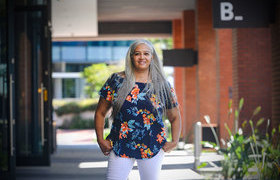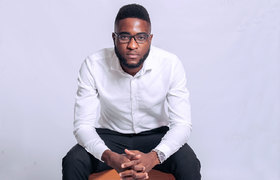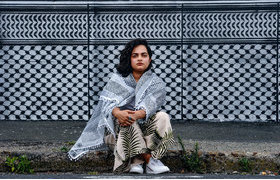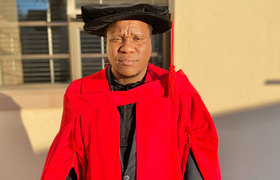Don’t be discouraged by events outside your control
14 December 2021 | Story Niémah Davids. Photo Supplied. Read time 8 min.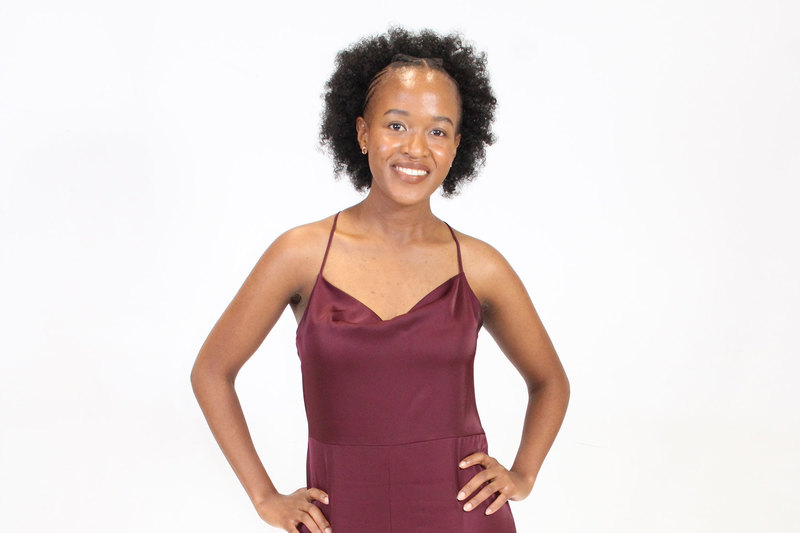
For Reitumetse Kholumo, achieving her degree in chemical engineering from the University of Cape Town (UCT) was a life goal. And as one of the Free State’s top 100 matric pupils in 2015, her admission to UCT was practically guaranteed.
Once she reached campus and began her academic programme, that goal felt unattainable. But she persevered, and after several stops and starts along the way, countless deferred exams and an extended degree as a result of her ill health, Reitumetse has finally reached the finish line.
On 14 December 2021 she will join hundreds of other UCT graduands as they take to a virtual stage during a jam-packed summer graduation season. And though she’s beaming with pride, she’ll give “just about anything” to receive her degree in the Sarah Baartman Hall (SBH), but that’s not to be.
“I’ve always dreamed of hearing my mother’s and grandmother’s reverberating ululations from their seats in SBH as I [am] about to be hooded.”
“I’ve always dreamed of hearing my mother’s and grandmother’s reverberating ululations from their seats in SBH as I [am] about to be hooded. I’m disappointed that I won’t get this opportunity, but I’m ecstatic that I’ll finally be graduating. It’s been wild,” Reitumetse said.
Feeling out of place
When Reitumetse arrived at UCT in 2016 she was in for a rude awakening. The once confident teenager felt like she didn’t belong there; she struggled to make the school-to-university transition, and to meet the demands of her academic programme.
“This was quite difficult to admit because I was always very confident, and I was able to adapt well to any given situation. I’d like to think that I’ve always been resilient. But not this time,” she said.
“For me, key to this process was learning to understand that I am neither defined by my failures or my successes as I transcend them both.”
Despite experiencing imposter syndrome, Reitumetse decided to focus on her studies. Even though the course load was huge, and nothing was more daunting than asking a question in a packed lecture hall, she promised to give it her everything. After all, she always wanted to study chemical engineering and have a hand in solving some of the world’s most complex problems.
Her resilience and her faith in herself and her ability to succeed were tested when she failed her first physics and maths test. “That was a very harsh moment for me. Before that I’d never failed a single test in my life and always prided myself on my good grades. I felt so ashamed; so small,” Reitumetse said.
But the Faculty of Engineering & the Built Environment’s (EBE) mentorship programme provided her with the assistance she needed to navigate this phase of her student life. Guided by a mentor who had been in her shoes before, she said she learned to embrace failure as part of her journey and she put in every effort to improve and produce better grades.
“For me, key to this process was learning to understand that I am neither defined by my failures or my successes as I transcend them both. This was a huge change in perspective because my identity had been grounded in being a top academic achiever. Now, I simply place more importance on doing the best I can in every moment,” she said.
Ill health
But things got worse before they got better. Following a personal traumatic event in 2017, Reitumetse was diagnosed with post-traumatic stress disorder. And after what felt like just a few minutes, in 2018 she was also diagnosed with fibromyalgia – a chronic condition that causes excessive muscle pain, fatigue and cognitive disturbances. Sadly, the diagnosis and its effects also led to her depression.
“The daunting realisation that – because of the fibromyalgia – I could no longer perform in the same manner as before led to my depression,” she said.
Reitumetse made the tough but necessary decision to decrease her course load and extend her degree. She also registered with UCT’s Disability Service and was accommodated accordingly. The fibromyalgia drastically affected Reitumetse’s ability to perform everyday tasks, including attending lectures. On the days that her symptoms flared up badly, it was impossible to concentrate on anything but managing the pain.
“I’ve lost count [of] how many exams I deferred since 2017.”
“It’s been a harrowing journey. I’ve lost count [of] how many exams I deferred since 2017. And there were also times when I forced myself to endure the pain just to get the exam done and out of the way,” she said.
Because her condition was so unpredictable, the risk of further extending her degree was likely. Therefore, she explained, a summer graduation in 2021 seemed out of reach, until she successfully completed her final course earlier this year.
“I am so excited and relieved that it’s all done, and my family is doing the happy dance too. They walked this long road with me,” she said.
Reitumetse credits the academic staff in the Department of Chemical Engineering for providing her with a solid and invaluable support structure and for encouraging her to keep going. However, disappointingly, she added, over the years she realised that some members of staff lacked education on lesser-known conditions like fibromyalgia and its effects on an individual. She encouraged the university to upskill staff to better understand such disorders to adequately support students in need.
“UCT needs to find a better institutional approach to invisible conditions like mine. You shouldn’t have to negotiate to be accommodated,” she said. “There were a few times when I felt pressure to demonstrate my suffering to someone on the other end of the line in order for them to understand my disability. While they always meant well, they lacked the right awareness and understanding.”
Be kind
Reitumetse’s journey as an undergraduate student has taught her more lessons than she ever thought was possible – the biggest one, she said, is to be kind to yourself regardless of what comes your way.
“But as Maya Angelou once said: ‘You may not control the events that happen to you, but you can decide not to be reduced by them’.”
As she prepares to transition into this new phase of her life, she said she has big plans, and a career in bioprocess engineering is definitely part of it. She plans to start her master’s in 2022 and build on her honour’s research, which focused on sustainably producing bioactive compounds from indigenous plants. This work also earned her a distinction.
She is sad to say goodbye – to the picturesque campus and her friends, but especially to her lecturers in the faculty who she has come to love and who have played an instrumental role in getting her to graduation day.
“Yes, I’m sad to say goodbye. But I’m also so happy that I’m finally in a position to actually say goodbye,” she chuckled. “It’s been a ride of a lifetime. But as Maya Angelou once said: ‘You may not control the events that happen to you, but you can decide not to be reduced by them’.”
 This work is licensed under a Creative Commons Attribution-NoDerivatives 4.0 International License.
This work is licensed under a Creative Commons Attribution-NoDerivatives 4.0 International License.
Please view the republishing articles page for more information.







